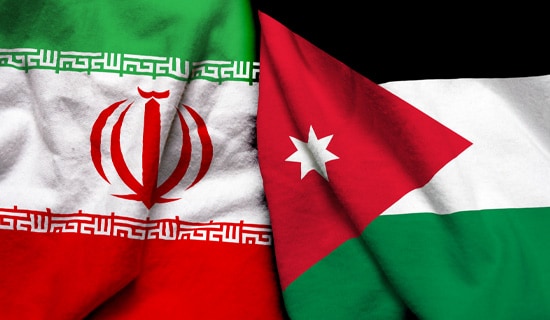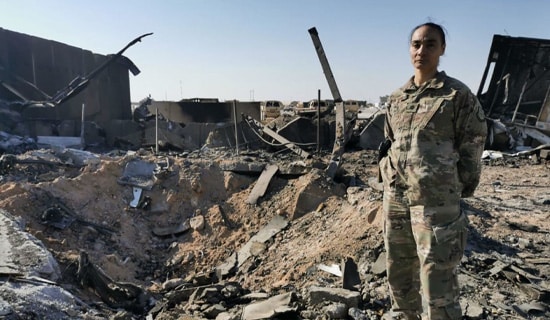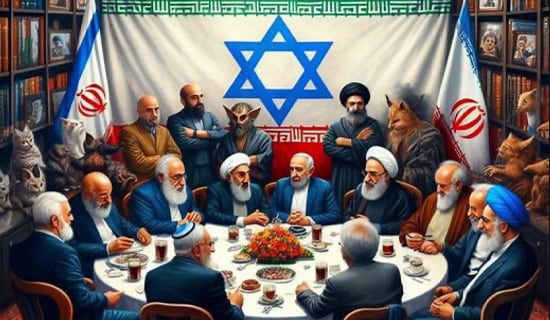Introduction
Over the past two years, Lebanese Shi'ite voices have emerged every so often to criticize and express resentment against Hizbullah over its military involvement in Syria. Beginning in August 2012, anti-Hizbullah Lebanese Shi'ites implicitly criticized Hizbullah in the Lebanese press for its joining the fighting in Syria. The Hizbullah-affiliated media have sharply condemned this criticism, even accusing these Shi'ites of treason and calling them "Shi'ites of the U.S. Embassy."[1] Gradually, even among the pro-Hizbullah Shi'ite public, particularly the families of members who have died in fighting, criticism has emerged of Hizbullah's military involvement in Syria; there have even been media reports of fissures within the organization in this matter.[2] A Lebanese Shi'ite journalist who described herself a supporter of the resistance even wrote in a recent article that Hizbullah was an "immoral, murderous" organization.[3]
These voices from the Shi'ite public, and the reports of young Shi'ites unmotivated to join Hizbullah's ranks, reflect a lack of confidence in the organization, and indicate that its status has been damaged among a public that has traditionally supported it.
In these circumstances, it is apparent that Hizbullah's Shi'ite opponents, both politicians and journalists, are feeling safer to express their views. Following the very high number of civilian casualties in Syria in the fighting for control of Aleppo and its environs between the two sides - the Assad regime, Hizbullah, and other militias versus the rebels - a new wave of criticism from Hizbullah's opponents has crested.
Various reports and testimony, as well as speeches by Hizbullah secretary-general Hassan Nasrallah, have indicated that even the Shi'ite public in Lebanon that has traditionally supported Hizbullah is now less convinced of the rightness of its path in Syria, and is perhaps also despairing because, while no end to the war is in sight, more and more dead and wounded Hizbullah fighters are returning to Lebanon; according to media reports, some 1,500 have already been killed. One report even stated that young Shi'ites - including sons of Hizbullah officials - are fleeing to Europe for fear that they will be recruited to fight.
Results of the recent elections for local authorities in Hizbullah's strongholds of South Lebanon, the Dahiya, and the northern Beqa'a also show that some of the pro-Hizbullah public is displeased with the organization's representatives, indicating a possible dissatisfaction with the organization's political activity as well.
The following are statements and criticism by Lebanese Shi'ites regarding Hizbullah's military involvement in Syria:
Shi'ite 'Lebanese Option' Party To Hizbullah: Stop Trading In Our Blood And Exploiting Our Youth
On May 1, 2016, following the massive airstrikes and massacres carried out by the Assad army, with the support of Hizbullah, against civilians and rebel forces in Aleppo and its environs, the student organization of the Shi'ite Lebanese Option party held a demonstration in central Beirut. The Lebanese Option, headed by Ahmad Al-As'ad, is a secular Shi'ite party that opposes Hizbullah. The former head of its student organization, Hashem Salman, was killed during a demonstration held by his organization in front of the Iranian embassy in Beirut in June 2013 to demand Hizbullah's withdrawal from Syria. The May 2016 demonstration, held under heavy police protection, was attended by dozens of Shi'ite students who protested Hizbullah's involvement in Syria and urged the organization to withdraw from there. In speeches delivered at the protest, it was stated that Hizbullah was "sacrificing the lives of Lebanon's Shi'ite youth" for the sake of the Syrian regime "whose hands are stained with the blood of its own people" and for the sake of Iranian goals that Lebanon's Shi'ites have no interest in. The speakers stressed that protecting Lebanon and securing its borders was the task of the Lebanese army alone, and that only the state was authorized to take decisions on matters of war and peace. They also emphasized that not all of the country's Shi'ites are followers of [Hizbullah secretary-general Hassan] Nasrallah, and that many voices have begun to be heard among this public opposing Nasrallah's plan in Syria. They demanded that he stop lying to the Shi'ites and playing them for fools with false claims of waging resistance against Israel and protecting Lebanon from it. They called on the Shi'ites to be loyal to their country instead of blindly following Hizbullah "which forces them to go to their deaths."
The current head of the Lebanese Option organization in the Lebanese University, Sally Hafez, said: "They called us filthy agents, hypocrite traitors and 'Shi'ites of the [U.S.] embassy,' they attacked us, fought us, persecuted us and killed our comrade, the martyr Hashem Salman, and [then] said it was an accident... [Oh Hizbullah], you bought and sold the blood of our young people, and sent back their torn up bodies in coffins. We never thought the day would come when free men are [called] 'traitors' while all those who trade in our lives are considered resistance [fighters]. Allah protect [us] from this era, in which anyone who opposes you is [considered] an agent, whereas all those who kill while hiding behind [the mask of] religion and honor are [considered] the most honorable of men. [We say] 'enough', a thousand times 'enough'! [Stop] insulting our intelligence, stop trading in our blood, stop exploiting our youth. The traitor is the one who leads his land, his country and his people to die alongside [the fighters] of oppressive, murderous and criminal regimes. We are only citizens who [love] their land and want to live in their country in peace. Take your blood-stained hands off us, [for] the mask has been removed from your [faces]."[4]
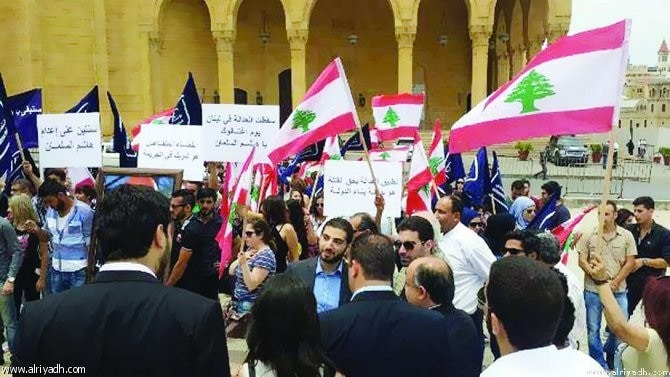
May 1, 2016 demonstration by the Lebanese Option student organization (image: Al-Riyadh, Saudi Arabia, May 1, 2016).
Several party members commented in the press that many Shi'ites in Lebanon oppose Hizbullah but prefer to keep their opinion to themselves out of fear for their lives and their livelihoods.[5]
Anti-Hizbullah Shi'ite Journalists: Hizbullah Is In "Deep Moral Crisis"
Criticism of Hizbullah and its fighting in Syria was heard also from several Lebanese Shi'ite journalists. For instance, in an article published April 22, 2016 in the London-based Saudi daily Al-Sharq Al-Awsat, Nadim Koteich, who is known for his anti-Hizbullah stance, criticized Hizbullah's fighting in Syria, stating that not only was the group in "political, military, and security crisis in Syria, but also in deep moral crisis that is leading its program and its existence to suicide." He added that this was due to its active support for the Assad regime that was killing its own people in Syria.[6]
Likewise, on April 29, 2016, following the Assad regime's and Hizbullah's attack on civilians in battles in Aleppo, Koteich tweeted: "If only Israel would annex Aleppo - because then it would be quiet like the Golan. Better for Aleppo's residents to be under the occupation regime than under the ruins."[7]
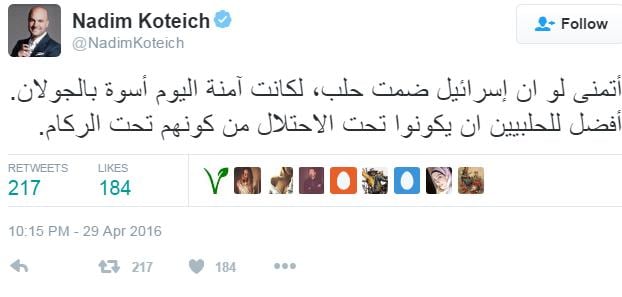
On June 15, 2016, 'Ali Al-Amin, a Lebanese Shi'ite journalist who is editor of the Al-Janoubiyya website, and is known for his opposition to Hizbullah, told the Lebanon360 website in an interview that Hizbullah was an organization belonging to Iran and that it receives instructions from it, and that the Syria fight is Iran's fight for its status and influence in the region, particularly in Syria. Therefore, he said, Hizbullah cannot decide on its own whether, or when, to withdraw its forces from there. Al-Amin added that there was no truth to Hizbullah's claim that the Palestinian issue is the main thing, because if it were, the resistance axis would not be cooperating with Russia in Syria because of Russia's alliance with Israel.[8]
Anti-Hizbullah Shi'ite Cleric: There Is No Religious Permission For Hizbullah's Fighting In Syria
Lebanese Shi'ite cleric Sheikh 'Ali Al-Amin, who is also known for his anti-Hizbullah views, said in a statement to the Turkish news agency Anadolu that "fighting alongside the Syrian regime is against the Shi'ite view" and that if Iran and Hizbullah "want to be on the side of [Shi'a founder] Hussein, they must withdraw from Syria... The slogans that Hizbullah is using as an excuse [for intervening militarily in Syria] are disproved and invalid. Likewise, there is no [religious] permission for intervening in any combative operations between members of the single ummah, under these or [any] other slogans."[9]
SUPPORT OUR WORK

Young Shi'ites, Including Children Of Hizbullah Officials, Go Abroad To Avoid Being Recruited To Fight In Syria
As noted, criticism of, and unease at, Hizbullah's involvement in the fighting in Syria are not found only among Shi'ites who always opposed Hizbullah, but also among the organization's supporters. An article published April 28, 2016 on the Alarabi21 website revealed that young Shi'ites are leaving Lebanon so that Hizbullah cannot recruit them into its ranks to fight in Syria. The article quoted a young Lebanese Shi'ite man residing in Belgium, Muhammad 'Abbas, who said: "I lived with my family in a town in the Beqa'a plain in Lebanon. After Hizbullah decided to gather all the young people in the Shi'ite villages and train them so that they would join the battles in Syria, I, together with a group of friends and with our families' consent, decided to flee to Europe and request asylum in an EU country... Each of us needed at least $7,000 in order to get to Europe, with the help of smugglers and forgery experts. Our journey began [with a flight from] Beirut airport to Belarus, where we stayed for a few days. Prior to that, it was agreed that we equip ourselves in advance with a return ticket on a connecting flight, so that we would be able to get off at Charles de Gaulle Airport in Paris." The article claimed further that this group of young people, all of them 22 or younger, applied for asylum in France; they waited at the airport there and were questioned and then allowed to enter France and file for asylum in any European country they wished.
'Abbas also pointed out, "Many young Shi'ites fled Lebanon during the years of the war in Syria. Some of them left for Africa, some went to South America, and some decided to seek asylum in Europe. This... was because of their opposition to Hizbullah's policy - involvement in the Syrian matter - [and also because of] many families' fear that their sons would fall in a war against the Syrian rebels and jihadis."
The article also presented statements by journalist Muhammad Al-Hamadi, editor of the UAE daily Al-Ittihad. He said that the exodus from Lebanon, particularly by Shi'ites, "first began last year [2015], after Hizbullah associates knew for certain that Hizbullah was about to lose its war in Syria, and that it aimed to defend Bashar Al-Assad and constituted a real furnace [to burn up] their sons." He added that after Nasrallah declared his war in Syria an "existential war," Hizbullah officials began smuggling their sons into Europe for fear that they would be recruited to fight.[10]
The phenomenon of bereaved mothers shouting in rage against Nasrallah at their sons' funerals is also continuing. On June 20, 2016, the anti-Hizbullah Lebanese daily Al-Mustaqbal reported on one such mother in South Lebanon; her son had been killed fighting in Syria. According to the paper, she shouted: "Oh Sayyed [Nasrallah], why? Hadn't we agreed that our sons would study the religion and fight Israel, not go to Syria? What do I have to do with Syria? What do we have to do with Syria? My son's blood is on your head."[11]
Hizbullah Elements Lose Strength In Recent Elections For Local Authorities
Results in recent elections for local authorities, particularly in the organization's areas of influence in the northern Beqa'a, southern Dahiya, and South Lebanon, also showed a decrease in Hizbullah's strength. In several cities and towns in these regions, not only were there more independent and clan lists, and lists of other parties, primarily leftist ones, running against the joint lists of Hizbullah and its Shi'ite ally the Amal movement, compared to past elections, but these parties also did better than in past elections.
Lebanese parliamentary speaker and Amal chairman Nabih Berri, an ally of Hizbullah, acknowledged that Hizbullah had lost some of its strength. On the results of the elections in Beqa'a towns, he said that a considerable number of the residents had voted against the Hizbullah-Amal list, even though they supported it politically.[12]
The two Hizbullah-supporter Lebanese dailies, Al-Safir and Al-Akhbar, also acknowledged that Hizbullah had lost some of its strength. Al-Safir stated that in light of the results of the local elections, the South Lebanese were no longer deluded that it was not possible to run against the Hizbullah-Amal list.[13] Al-Akhbar also noted that Hizbullah's strength had declined in its Tyre area stronghold, but, like Berri, denied that this was because of opposition to its political path; it was, it said, in protest of its conduct.[14]
Nasrallah Responds: The Fight Is Worth All The Victims
A recent speech by Nasrallah showed the sense of erosion of Shi'ite support for Hizbullah's involvement in Syria in light of the high Hizbullah casualties in the past four years. On May 20, 2016, at the end of the week of mourning for the organization's military leader Mustapha Badr Al-Din, who was assassinated in Syria, Nasrallah attempted to address this feeling, stressing that the many casualties were worth it. He said: "We went into this battle [in Syria] and Sayyed Mustapha Badr Al-Din was killed as a martyr in this battle. We went together with all our martyrs in order to defend - as we said in the past, and as I reiterate today following questions - Lebanon, Syria, Palestine, the entire ummah, and the resistance axis.
"Already in the beginning, we were aware of the ramifications of this position and this choice. We said that we would bear this yoke and that even our people and our men would bear this burden with us. We sacrificed a large number of martyrs and wounded; we withstood ugly media attacks aimed at harming our image and our reputation... Some of our commanders were killed. We knew that we were going towards this - but all these are victims on the way to something more important. Because if Lebanon remains, Syria remains, Iraq remains, the region remains, and Palestine and the Palestinian cause remain [on the agenda] as they are today, and they [the enemies of the resistance axis] are defeated, this will be worth this casualty rate...
"Throughout the 34 years [since Hizbullah's founding], we have experienced difficult circumstances, worse than the situation described today. In fact, in comparison to all the circumstances in the past, our situation is better... We will get through this stage as well, with Allah's help."[15]
It should be noted that this is not the first time that Nasrallah has had to address a sense of doubt in the Shi'ite public that supports Hizbullah regarding its fight in Syria. A year previously, in a May 24, 2015 speech marking the anniversary of Israeli troops' withdrawal from South Lebanon, as well as the day before, at a meeting with Hizbullah wounded, Nasrallah said that the organization was facing an existential battle that required many sacrifices: "Today's existential battle requires many sacrifices. This fight is greater, more dangerous, and crueler [than the fight against Israel in 1982], because one way or another it [is waged] within the home. Anyone who wants to defend [his] existence, survival, honor, and homeland has no option but to be ready to make sacrifices." He added that "even if three-quarters of us die as martyrs in this battle [in Syria], and a quarter remain alive," it was preferable to slaughter, captivity, and exile.[16]
* E. B. Picali is a research fellow at MEMRI.
Endnotes:
[1] For criticism of Shi'ites who oppose Hizbullah's military intervention in Syria, see MEMRI Inquiry & Analysis No. 938, Independent Shi'ites In Lebanon Challenge Hizbullah, February 22, 2013.
[2] For the schism within Hizbullah and between the organization and its supporters over the organization's military involvement in Syria, see MEMRI Inquiry and Analysis No. 1021, Rift In Hizbullah And Among Its Shi'ite Supporters Due To Its Military Involvement In Syria, October 3, 2013. For statements by Nasrallah and in the pro-Hizbullah media indicating a crisis of confidence between Hizbullah and the public supporting it, see MEMRI Inquiry and Analysis No. 1163, Distress Signals By Hizbullah Leader Nasrallah And Pro-Hizbullah Media Reflect Growing Sense Of Existential Danger, Crisis Of Confidence Between Hizbullah And Its Supporters, May 29, 2015.
[3] See MEMRI Special Dispatch No. 6408, Shi'ite Lebanese Journalist: I Renounce The Shi'ite Sect; Hizbullah Is 'Immoral, Murderous', May 2, 2016.
[5] Al-Riyadh (Saudi Arabia), May 1, 2016.
[6] Al-Sharq Al-Awsat (London), April 22, 2016.
[7] @NadimKoteich, April 29, 2016.
[8] Lebanon360.org, June 15, 2016.
[9] Aksalser.com, May 29, 2016.
[10] Alarabi21.com, April 28, 2016.
[11] Al-Mustaqbal (Lebanon), June 20, 2016. In March, the paper reported that bereaved mothers of Hizbullah members had refused to receive Hizbullah delegations that came to greet them for Mother's Day. Al-Mustaqbal, Lebanon, March 23, 2016. For more on the rage of bereaved families of Hizbullah members, see MEMRI Inquiry and Analysis No. 1021, Rift In Hizbullah And Among Its Shi'ite Supporters Due To Its Military Involvement In Syria, October 3, 2013.
[12] Al-Nahar (Lebanon), May 16, 2016.
[13] Al-Safir (Lebanon), May 24, 2016.
[14] Al-Akhbar (Lebanon), May 23, 2016.
[15] Alahednews.com.lb, May 20, 2016.
[16] See MEMRI Inquiry and Analysis No. 1163, Distress Signals By Hizbullah Leader Nasrallah And Pro-Hizbullah Media Reflect Growing Sense Of Existential Danger, Crisis Of Confidence Between Hizbullah And Its Supporters, May 29, 2015.


